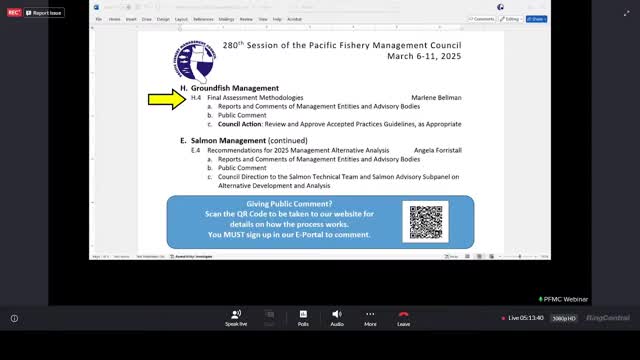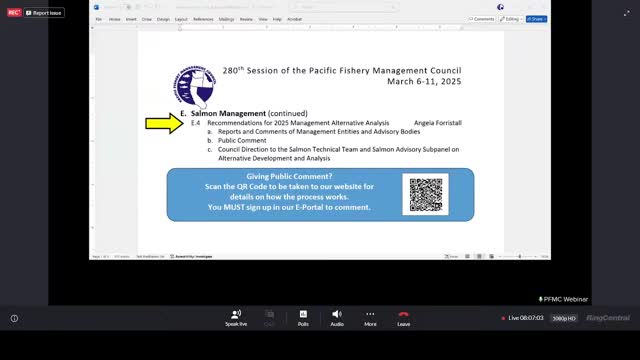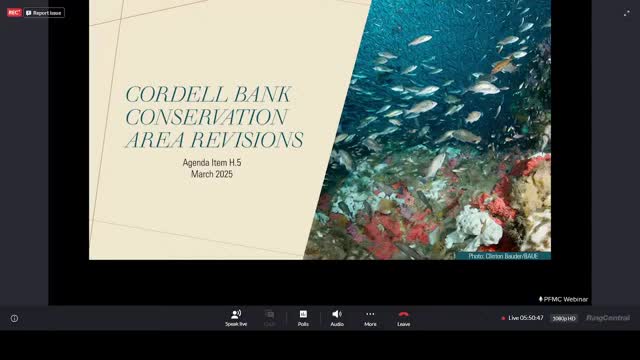Article not found
This article is no longer available. But don't worry—we've gathered other articles that discuss the same topic.

Council reviews SSC's groundfish assessment guidance; fishermen press for independent Petrale sole review and more local data

Council reviews STT salmon alternatives, defers guidance to tomorrow; Colville Tribes urge shifting ocean fishing timing to boost Upper Columbia summer Chinook

